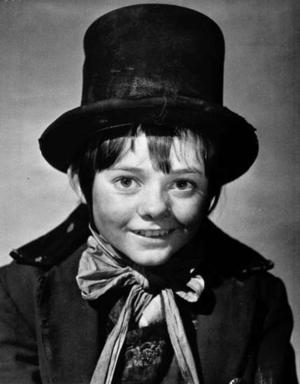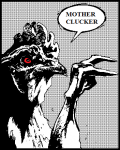Ah. A Marvel Zombie...(look it up, it doesn't just refer to the series)
I'm primarily a DC man myself, although I do read a few Marvel books. When I was younger, back in the 80s and 90s, I was a Marvel Zombie all the way through - but with a hint of insanity, because British boys comics of the 70s and early 80s, or more particularly 2000AD, were completely mental; Judge Dredd, Rogue Trooper, The VCs, Slaine, Zenith... the list goes on and they're all absolutely hatstand... 2000AD probably explains a lot about my generation of British comic book fans and possibly why the British influx of writers completely revolutionised the US market.
Back in my youth Marvel had that whole "relevance to the real world" thing going on. The X Men were obviously "about" racism and teenage alienation, The Fantastic Four was obviously "about" family, Spider Man was obviously "about" growing up. The DC Universe just seemed silly. Brightly coloured idiots going about ridiculous adventures.
Then something happened, I grew up. I got interested not just in the content, but in the nature, of story. DC's characters are, at base, what you might call storytelling engines. They exist, as Grant Morrison seemed to be pointing out in
Final Crisis and its spinoffs, to have their own very specific stories told about them.
Marvel's characters always seem secondary to the stories about them imo; Spider Man could be anyone, the ever revolving cast of the X Men are pretty much interchangeable for the most part. That's not to say that good and interesting stories can't be told about them, they can; but the characters are not really vital to the nature of the stories themselves. That's not true of DC's characters; I think. These characters are iconic in a way that Marvel's aren't. A Superman story
has to be about Superman, it would be utterly incomprehensible if it weren't (see
All Star Superman). The Batman is the guy who always wins, who is always prepared for what will happen, who has thought everything through; he will always win, and his stories are simply about how he manages it (see
Batman RIP or his appearances in the early 00s
JLA run). You might notice that I'm using Grant Morrison examples here; but as he is my favourite writer and, with Geoff Johns, pretty much runs the DC Universe nowadays storywise, I think I'm allowed.
In conclusion, I'm now a DC fan because the DC Universe seems to contain stories with more archetypal meaning to them than those in the Marvel Universe. They speak to me on a deeper level about what it is to tell stories. Which, I realise isn't for everyone. An example is probably in order here: during
Final Crisis,
someone asks Mr Terrific how he can remain an atheist when he personally knows an angel. That's the kind of storytelling you don't see in the Marvel Universe because none of the characters who live there seem to be aware of the implications of their mere existence. DCs characters have a self awareness about them, about what they themselves mean. Whereas Marvel's characters are blissfully unconcerned about such things as, at base, they don't seem to mean anything, they just are.
Anyway, I'm rambling and not really answering the question you posed. You asked for examples of why someone might prefer one company's product over the other's and instead got a fairly incoherent essay on the philosophical differences that one longtime fan finds between the Big Two. Oh well, it is nearly two in the morning here and that is, very unfortunately, the kind of thing you'll get from me when I answer questions like that one at this time of night...
[edit - grammar and punctuation... 'cos I'm a species of obssessive/compulsive]
This post has been edited by stone monkey: 07 June 2009 - 12:50 AM
If an opinion contrary to your own makes you angry, that is a sign that you are subconsciously aware of having no good reason for thinking as you do. If some one maintains that two and two are five, or that Iceland is on the equator, you feel pity rather than anger, unless you know so little of arithmetic or geography that his opinion shakes your own contrary conviction. Ö So whenever you find yourself getting angry about a difference of opinion, be on your guard; you will probably find, on examination, that your belief is going beyond what the evidence warrants. Bertrand Russell

 Help
Help


















